It’s Not Grain Putin Wants – It’s Water
by Andrey Beregovskiy
For several weeks now, the world has been following the movement of troops on the Russia-Ukraine border with a question: What does Putin want? While the Kremlin cites potential Ukrainian membership in NATO as a casus belli, experts have been proposing alternative reasons for why Vladimir Putin wants to invade Ukraine. In a recent post, Brian Czech suggests that the most overlooked reason is the extremely fertile agricultural lands comprising much of Ukraine.
As a Russian person who has been closely following the ongoing conflict in Ukraine and Putin’s career, I see several political and geopolitical reasons for Putin’s Ukraine ambitions. Putin has imperialist and personal motivations for “reuniting Ukraine with Russia.” However, one word that I have never heard in relation to the Russia-Ukraine tensions was “land.”
It is not a secret that Russia has a lot of land, including the “chernozem” (Russian for “black soil”) that Mr. Czech mentions. It is true that agricultural production has become extremely important for Russia since Putin effectively cut Russian food markets from Europe in 2014, citing the need for import phaseout and preferential treatment of Russian-grown produce. However, when we look up the top five wheat exporting countries in the world, Russia is right there. In fact, according to the UN Statistical Division, Russia is the number one exporter of wheat, responsible for 18 percent of the global wheat market. That’s along with top-five rankings for natural gas and crude oil exports, as well as top places for metal exports.
Mr. Czech realizes that Russia is itself a major grain producer, and argues that Putin wants “a lot more of it” (Ukraine’s grain in addition to Russia’s, in other words). Yet, I think resource scarcity is not a problem for today’s Russia. But what is? I have an answer for you: Crimea.
Echoes of a Bygone Era
A closer look at the history of Crimea can give us a better understanding of the events of the last eight years. The question of Crimea annexation was not new in 2014 but had been circling around for some time since the collapse of the Soviet Union. The problem was two-fold. On one hand, the majority of the Crimean population was Russian, which is why the Republic of Crimea was granted autonomy by the Ukrainian centralized government in 1991. Previously, Vladimir Putin shared his sentiment that after the collapse of the Soviet Union, the Russian nation became the biggest fractured nation in the world, and Crimea is not the only place outside of Russian borders with a predominantly Russian population. The Donbas region, which has been in a state of war since 2014, speaks Russian primarily. Parts of Northern Kazakhstan are predominantly Russian. Parts of Baltic states, especially Latvia, speak Russian and identify their nationality as Russian.
When Russia was a colonial empire, the territorial division was hardly relevant. Borders between what was Russia and what was Russia’s colony were artificial, and people, who identified themselves as Russians, were populating every piece of land that they could reach without much thought whether it was Russia or not. Moreover, a big group of Russian subjects was banned from settling near big cities: that is, Jews, who had to settle somewhere, where they would be further from the imperial government but still within the fertile lands of the Pale, including in what is now Ukraine.
The transition between the Russian Empire and the Soviet Union was rough and mostly consisted of an extremely brutal civil war. When the Soviet Union was formed, borders stayed largely the same, drawn not by nationality but by natural boundaries such as rivers and mountains. Generally speaking, today’s borders between former Soviet republics were not given much more thought than the borders in post-colonial Africa or American states west of the Mississippi River.
Compared to the Russian Empire, the Soviet Union was a little less centralized. Local governments were created to administer lands more efficiently, and territorial division in the Soviet Union was less nationalist and more practical. Lands were ceded to the republic that seemed most suitable for administration. This is how the Crimea conflict originated.
Crimea has always had one big geographic problem: water. Crimea gets little rainfall, and rivers are scarce. The land in Crimea was therefore unsuitable for agricultural crops, and even drinking water was scarce. The idea of building a canal from the Ukrainian Dnieper River was proposed all the way back in the 19th century after a massive drought, but construction didn’t start until 1956. Notice the timing here: Crimea was transferred to Ukraine in 1954.
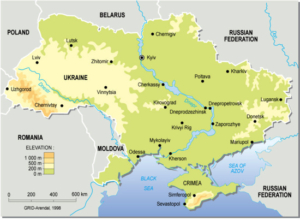
The Kerch Strait links the Black Sea to the Sea of Azov. The Crimean Bridge spans the strait to Russia, but the connection carries no water. (CC BY-NC-SA 2.0, GRID-Arendal)
Soviet bureaucracy was immobile and inefficient. The dialogue between republics was expected to go through the central government. If land belonged to the Russian Soviet Republic, resource inputs (fertilizers and water, for example) would have ideally come from the Russian Soviet Republic as well, not from the Ukrainian Soviet Republic. Crimea was a part of the Russian Soviet Republic, but needed to get water from Ukraine. So, it was without much thought when the Soviet central government transferred Crimea to the Ukrainian Soviet Republic.
When Russia and Ukraine were united in the Soviet Union, it was not so relevant for people in Crimea which republic they belonged to. Now fast forward to 1991, when Ukraine declared independence from the Soviet Union and left with its “gift” of Crimea. Suddenly there was an entire Ukrainian peninsula with a predominantly Russian population; an administrative relic from Soviet Union days. Furthermore, the Russian Black Sea Fleet was still stationed in Sevastopol.
The Crimean scenario still wasn’t a problem when Ukraine was relatively allied with Russia. Even after 1991, Russian people didn’t really see Crimea as part of another country. They didn’t need a passport to travel to Ukraine, and Crimea was a low-cost resort, right along with Russian Sochi and other Black Sea towns. Only after Ukraine started to look to the West did Vladimir Putin warn that if Ukraine were ever to join NATO, it would do so without Crimea and Donbas. Thus, after the Maidan Revolution in 2014, Putin gave the order to annex Crimea.
The Canal
Despite its proximity to the Russian border, Crimea is effectively an enclave. It is separated from the Russian Mainland by the Kerch Strait that links the Black Sea and the Sea of Azov. After the annexation in 2014, Russia’s biggest infrastructure priority was a bridge between Taman in Russia and Kerch in Crimea. However, even with a bridge constructed, Crimea remains accessible only by car and one train route, a highly restrictive geography for transporting goods.
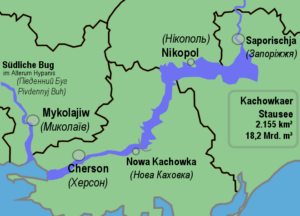
The Kakhovka Reservoir, northeast of Nova Kakhovka (Nowa Kachowka), is the origin of the North Crimean Canal. (CC BY 2.5, Francis McLloyd)
All of which brings us back to the canal originating in Ukraine. To the northwest of Crimea is a town called Nova Kakhovka, and if you zoom in closer, you will see the Kakhovka Reservoir and the origin of the North Crimean Canal. When Crimea was annexed by Russia, Ukraine closed the water flow into the peninsula. While there are some scarce aquifer resources, Crimea faced a centuries-old problem: shortage of potable water (and adequate irrigation water for agriculture and viticulture). In 2018, Radio Free Europe/Radio Liberty reported on a Ukrainian government report that in only four years, Crimea had dried up. (If you compare the satellite imagery in the article, you will notice a stark difference between 2016 and 2018.) The problem has only worsened, with no resolution in sight, other than reopening the water supply from the North Crimean Canal.
Drawing a line between Nova Kakhovka and Rostov-on-Don, we see it goes adjacent to the Donbas region and directly through other Russian-speaking regions of Ukraine such as Mariupol. If Russian troops start in Rostov-on-Don, advance through Donbas and make their way to Dnieper River, they will be able to reopen the Canal. Additionally, if these areas of Ukraine are annexed by Russia (citing the Russian nationality of people who live there), Crimea ceases to be an enclave and Russia gets a decent travel route from one of the major metropolitan areas (Rostov-on-Don) directly to the peninsula.
“Vladimir the Great” Fights for Water
It is hard to say that there is one single reason for the invasion of Ukraine. The idea of this invasion is not new; indeed, this invasion wouldn’t be the first. As Ukrainian president Volodymyr Zelensky said, there is no threat of war with Russia now because the war with Russia has been ongoing since 2014. Tens of thousands of victims of the eight-year-long war in Donbas, tens of thousands of Ukrainian refugees that had to move to Russia because their homes were destroyed by bombs, and 298 passengers of the Malaysian Airlines Boeing-777, who were killed by Russia-backed forces, can attest to that.
Is it the threat of Ukraine joining NATO? Possibly. Is it about Putin’s imperialist ambitions? Possibly. Is it about protecting Russians abroad? Quite unlikely but possibly.
Brian Czech proposes that if Putin were to warrant a “the” title (in the traditions of Ivan the Terrible or Alexander II the Liberator), it ought to be Putin the Practical. I’m sure Putin doesn’t mind being practical, but the title he’s really after is Vladimir the Great.
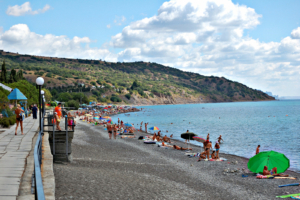
Crimea’s natural beauty, luxury resorts, and sunny beaches have made it a favorite vacation spot for Russians, but fresh water is a limiting factor. (CC BY-SA 3.0, Victor Korniyenko)
For centuries, Crimea has been a tourist destination for the rich and the poor. Russian writers were gaining inspiration from the beautiful Crimean Mountains, while one Russian Czar had an affair while having a vacation in Livadia Palace. In 2014, Putin promised his nation a paradise on Earth, a land with beaches and resorts comparable to Turkish and Egyptian holiday spots so beloved by Russians. But the big dream didn’t materialilze. Crimea became a land of sanctions, where even Russian companies were deterred by Western countries. In addition, Crimea was effectively left without potable water; not the best conditions for a luxurious resort. Is this how Vladimir the Great earns his title? On promises broken for lack of water?
When I first approached the question of a possible war escalation, the question of water supply was the first one that popped into my head. With everything that has been going on in the world, with all the calls between Putin and Biden, meetings with NATO officials, high-level meetings between Putin and Macron, I kept in mind the problem with water. Yet, I can hardly fathom the fact that there can be a full-scale war in 21st century Europe because of potable water. But it is the reality we live in: there can be war in Europe today with massive casualties over access to potable water.
For years and decades now, we have been warned by experts (including Mr. Czech) that access to fresh water will become a problem, especially in the driest lands on Earth, like Sub-Saharan Africa or parts of the Middle East. But, today, we do not need to go that far geographically or temporally to see a very real conflict, which could be triggered by a lack of potable water, and involves not an underdeveloped nation but a nuclear power.
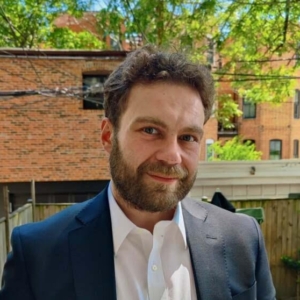 Andrey Beregovskiy is a communications assistant at Johns Hopkins University, where he graduated with an M.A. in Government in 2019.
Andrey Beregovskiy is a communications assistant at Johns Hopkins University, where he graduated with an M.A. in Government in 2019.

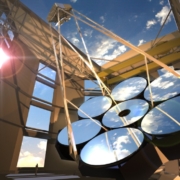
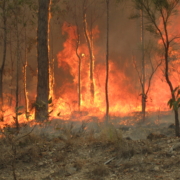
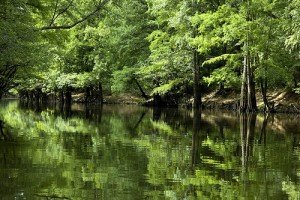
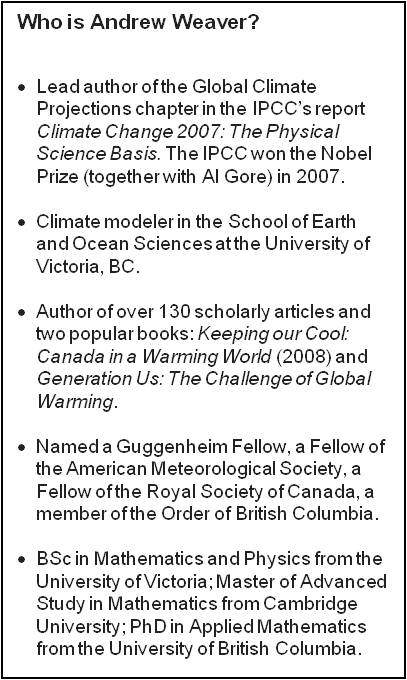
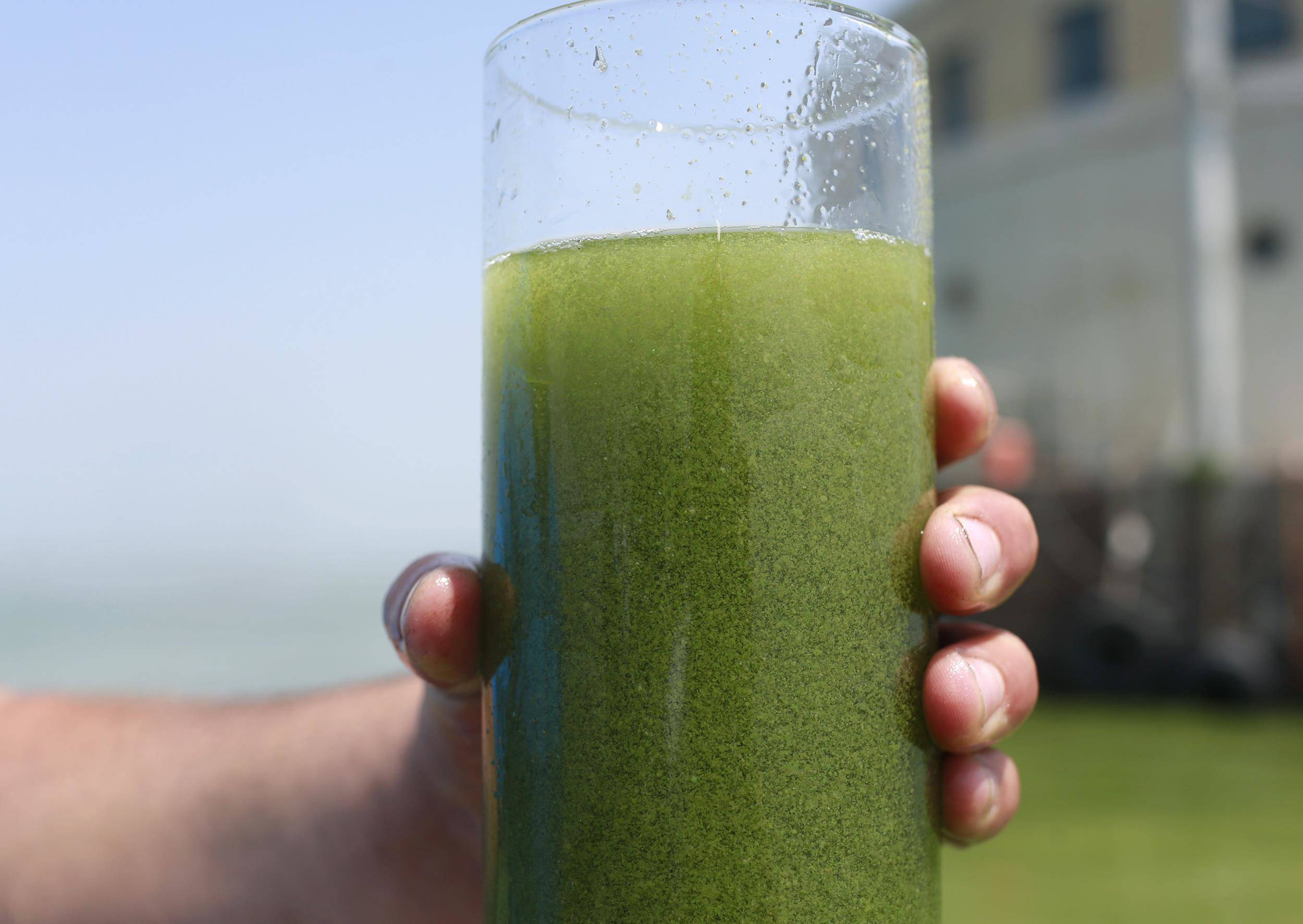


I remember two internal water wars in Bolivia, which has a better water situation than Crimea (something I only learned thanks to this article by Andrey Beregovskiy). Interesting that Steady State Herald gets the scoop instead of CNN, with its highly paid reporters.
Thank you for your kind words, Mark!
Water resources for Crimea is not any reason for Russia to engage militarily in Ukraine. It might possibly be a secondary consideration if Russia got militarily involved in response to an attack on the Donbas. Putin has always been reactive to western actions. He is cautious and only takes calculated risks when needed. The lack of context about NATO expansion and the Washington backed coup in Ukraine in 2014 makes it easy for the author to claim Putin is an imperialist which is not true. If he was, he would have taken over Georgia in 2008 and Ukraine in 2014-2015 and NATO membership for each would be moot. And the idea that Russia wants to take over Ukraine – a divided, corrupt and poorest country in Europe – and deal with all the fallout for some extra agricultural land is ludicrous.
Hi Natylie, thank you for your response, it’s valuable for me to see critical opinions on my thoughts. I think we operate from different standpoints. I’m not quite sure, which coup you’re referring to, because Euromaidan wasn’t a coup, it was a revolution, which had clear reasons and gravity centers inside Ukraine. I was following that revolution extremely closely, and was talking to a lot to people, who were defending the streets of Kiev in January and February 2014. Also, I’m not quite sure what you mean by “backed by Washington.” If you mean that the White House supported the popular movement, I don’t see a problem here. But I have a feeling that you’re hinting at more than just words, I have a feeling that you have some evidence that Washington inspired and prepared this revolt. If you do have some evidence, I would love to see it. I am 99% sure that this revolution started in the masses, not high-level offices, but if you think otherwise, I’m open to a dialogue.
Second, I do claim that Putin is an imperialist and I stand by this claim. However, one important caveat is that it’s not the old-school pre-War imperialism but more of a post-War, Yalta-Potsdam system, where geopolitical poles have their zones of influence in the world. Putin repeated a few times that Russia has a say in what happens to former Soviet Republics, and this entire crisis revolves around this idea: Ukraine must not be a member of NATO because Russia doesn’t want it to be. But here’s my question to you: do you think it’s fair? Yes, he didn’t conquer and annex Georgia in 2008 but Russian tanks were in Gori. Why?
Closing out, I recommend a book by Michail Zygar “All the Kremlin’s Men”, it can give you a very good insight into how Putin thinks and operates. Disclaimer: it is largely based on anecdotal evidence, so do take it with a grain of salt. Read the preface very carefully before reading the rest of the book.
Reach out if you want to talk more, I’d be glad to discuss this topic more!
“Some extra agricultural land”? The breadbasket of Europe is relegated to “some extra agricultural land”? Sounds like someone’s economics is neoclassical at best, and non-existent at worst (well, maybe that’s worse). But it only adds to the need for articles such as mine and Beregovskiy’s. Conventional economists and their counterparts in the media constantly overlook the absolute primacy of the agro-extractive sectors and resources.
I’m not fond of quoting Lenin, but “grain is the currency of currencies” was both history (shown by the origins of money in Mesopotamia and China) and prescience, as the 21st century is starting to reveal. As supply curves across the board move inward under the pressures of a bloated, $90 trillion global economy, the breadbasket of Europe will give whoever controls it the best possible hedge against inflation.
The only question is whether Putin knows it and is motivated (in part) by it. I suspect he is, for there is hardly a reason not to be.
Hi Folks – If not today, tomorrow then – as we are simply running out of time and resources; particularly energy, as we all know the Green Energy Plan is a fraud/hoax and utterly impossible to undertake for a number of reasons including the collapse of the global economy and all its currencies in the near future as hyperinflation takes hold due to severe shortages in so many commodities. WWIII is merely a self-evident foregone conclusion. See attached.
Hopefully, I’ll see you at the finish line…
Terry
https://firstfinancialinsights.blogspot.com/2022/02/limits-to-green-energy-leading-to.html
Andrey Beregovskiy thinks that if he is on the paylist of John Hopkins University he is obliged to be anti-Russian. I sit here in Serbia and can clearly see that CASSE is not only about resource depletion but it has strong political agenda too.
If water is so huge a problem for Crimea, there should be reduction in population and income for Crimea citizens. Does Andrey have some statistical data to prove that there was population reduction in Crimea since there was water blockade? I suppose that Crimea citizens now live better than when they were part of Ukraine. Also, should not Andrey also be concerned about US imperialism that is harming countries around the world for more than hundred years? At least as much concerned about it as for the Russian imperialism.
Yes, that’s true: the water supply issue to Crimea is a complicated one.
After Russian annexed Crimea in 2015-2016, they had severe problems with water supply. So, to solve this, at least party they started:
a) drilling wells to get artesian water;
b) to change the watercourse of local rivers to supply water to basins.
Partly this solved the problem during 2017-2020.
And overflows last year made the situation better too.
So, in the case, they do not plan to renew agriculture in the North of Crime, that is enough water. But this issue is still used by Russia to speculate.
Water is indeed one of Putin’s chief concerns motivating his attempt to annex Ukraine – but it is not only potable water supplies, it is year-round Russian access to a deep water port (Sevastopol). Most of Russia’s deep-water ports are ice bound for part of the year, which is an obvious drawback to the development of Putin’s military ambitions.
“attempt to annex Ukraine”
There is no such attempt. Ukraine would be just unnecessary and huge burden for Russia. Only a fool would annex hostile and poor Ukraine. That would be just unnecessary expense. Russia already has what it really needs – Crimea. But I suppose that many Ukrainians would prefer “Russian occupation” to criminal regime that US installed.
Different points of view, and our failure to work to understand them, leads to conflict and loss. We need to take the time to patiently discuss with one another to get a fuller understanding of the whole picture, then reach agreement on what is real and right. We have so much in common and its still so hard to reach the common ground of understanding and peace, but well worth the effort.
American imperialism mentioned as a problem, and I agree that this is a problem although I wouldn’t frame it as ‘western imperialism’. Its more the free market throwing up powerful wealth generating corporations with marketing and lobbying power. The western corporations are coupled with the western democracies with free speech, one man one vote. Its all imperfect, the influence of the non humanlike profit hungry corporations on the voters and their representatives skews the general direction away from best benefit.
Just maybe corporate market protection and market growth could be influencing western military defence where the west pushes up against dissimilar nations. The corporate model needs to find a new mode to address the aspiration of continuous growth and environment destruction, discouraging any unnecessary consumerism and levelling up inequality and opportunity.
The main benefit in the west is free speech, dissenters can dissent, minorities defended, bullies reputations exposed talked about and disempowered.
Russia doesn’t seem to me to identify as part of the west. The west is pushing up against it like a seismic plate generating friction and concern.
I’m not well versed on Russian history although my simplistic sense of it is that free speech democracy has never really been given the freedom to override the traditional controlling powerbase. Its stuck, if a leader were to embrace democracy they would likely be ‘removed’ by others with too much to lose. It is what it is for now. Putin operating within that system needs to be seen as strong, to keep his…
.. to keep his personal position safe, and to deliver a successful Russia for all people who identify as Russian. He’s got the corporate influenced west on his doorstep persuading the neighbours that west is best, signing up for the security package placing ICBMs ever closer to his homeland. Many inhabitants in those neighbouring countries identify as Russian. Putin is concerned, as he sees it the west doesn’t listen unless his tanks are on the ground…
For me the best but less likely outcome is dialogue, the west might accept that the eastward push of nato has partly been influenced by corporate influence on the democratic process. Its insensitive in countries where many people identify as Russian. Lets accept that.
Russia can in turn accept that those countries are no longer part of Russia. Maybe devolved regional democracies can be set up within those countries protecting Russian identities where desired. Good neighbourliness can prevail.
https://www.bbc.co.uk/news/world-europe-61736179
Brian not so wrong!
You don’t need to quote Lenin to show how Soviet dictators have coveted Ukrainian “gold”, Holodomor and Stalin is a good example. As irrigation is essential for grain production is Kherson and Zaporizhzhia, controlling the Kakhovka HPP is necessary for access to water for south Ukraine and sending Dnipro water to Crimea through the NCC. So water is key in the supply chain of grain production!
https://www.atlanticcouncil.org/blogs/ukrainealert/mr-jones-film-exposes-the-fake-news-campaign-behind-stalins-ukrainian-genocide/